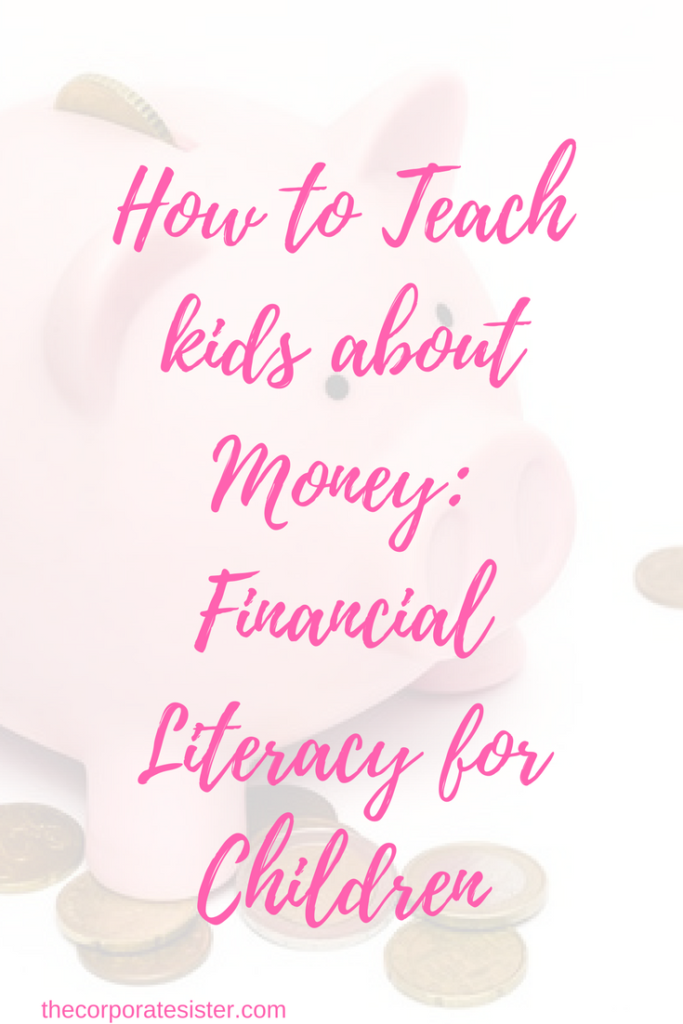 Most of my initial knowledge about money came from my childhood. I was raised in a single-parent household where money was not necessarily in abundance, and as a result I was made to understand that money is to be valued and comes from hard work. As I grew up and learnt more about money, I also realized that there’s a whole mindset around the concept of money. I’m sure you have received many messages about money as a child as well.
Most of my initial knowledge about money came from my childhood. I was raised in a single-parent household where money was not necessarily in abundance, and as a result I was made to understand that money is to be valued and comes from hard work. As I grew up and learnt more about money, I also realized that there’s a whole mindset around the concept of money. I’m sure you have received many messages about money as a child as well.
For many, if not most of you your entire mindset about money still comes from those childhood experiences and messages that you may have received. Some of us have added to this knowledge from our childhood through books, seminars, as well as more formal training. Others have transcended those messages and earlier experiences about money with their own acquired knowledge. The point here is that the way we treat money and the way we think about it largely comes from our childhood. Hence the importance of teaching children the right mindset and helping them develop the right habits around money.
It’s not until I became a parent myself that I started thinking about money, and the effect it has on families as well as entire generations. Thinking about money not just as a tool, but also as an ideology and a mindset helped me recalibrate my own understanding of finances. This in turn allowed me to teach my children a more positive and empowering message about money. From my experience as a parent, career and business woman, I have extracted various money lessons to pass on to my children. These are the lessons I would like to share with you today.

It’s important for us as working women to understand our own view of money, and adopt the right mindset and habits around my knee. Not only is it crucial for our own development and success as women but it also matters a great deal to our children and our families as they get a large part of their own understanding of money and practice of money from us.
Here are seven tips I would like to share that I have learned to myself about how we can as successful and driven working women teach our children about money:
-
Start with your childrens’ mindset
As a child, my circumstances as well as the messages I received from well-meaning adults taught me that money is simply this tool we use to make purchases or live in certain conditions. As an adult, I was fortunate to learn that money is a mindset first. One that is rooted in abundance and not in lack. One that is based on the profound belief that we are always provided for.
However, this mindset should be rooted in positive action. As a matter of fact, no mindset can stand alone without the positive effect of consistent and persistent action. Begin by teaching your kids to form their own beliefs about money. You can do this through conversations and positive messages around the belief that we as people have resources, means and ways to provide for our own and those around us. Instead of having conversations rooted in limiting beliefs such as “We only have a certain amount of money” or “We don’t have enough money” or “Money is limited”,for instance.
Instead, try to foster positive messages such as “You are always provided for”, “Money comes to you easily”, or “You have the power to create the money you need at all times”. These are the same beliefs I grew up in, and I’m still having to learn the hard way. You can foster this by repeating affirmations with your children around money and abundance. You can also do this by involving them in the process of your family finances and challenging them to come up with innovative ways to create money, whether it’s through business ventures ,chores or allowances. The point here is to instill in them the clear belief that money is rooted in a mindset of abundance rather than lack.
-
Teach your children about value.
One of the first concepts we often have to deal with as children and growing adults is that money is but a thing. For many of us, it’s just that thing that is included in our paychecks after one, two or four weeks of hard work. It’s just that thing that we use to buy the stuff we want or need. Very rarely do we learn to see money for the value it actually provides. This is because many of us don’t understand the concept of value to begin with. This is also because many of us have not been taught about this concept as children.
As a child, I was taught about money as a commodity. Yet, as I grew up and became an adult, I learnt about the precious principle of value, or receiving something in exchange for something else not just as a simple means of exchange but as a way of providing something that can serve the greater good. Today I teach my children to look less at the money then at the value they can provide through it. For instance, I strive to make them understand that the point of them doing chores and receiving an allowance is not just for them to get and spend money. It’s for them to be able to deliver a work of value that makes a difference and serves the greater good. In our family this greater good is the well-being of the family, and the fact that we can all benefit from the chores they partake in. When I discuss the work I do with them, I don’t discuss it in terms of doing something that can bring me money. Rather, it is something that I see as benefiting the greater good, as is the case for all of us.
Instilling in our children a sense of value for the greater good will not only turn them into proactive citizens who desire to make a difference. It will also help them not put money above the real value that it is providing. You can do this by attaching every purchase that you make together and for which you use money to the value it is providing. For instance, when you buy a toy for them, help them understand the value of that toy beyond its monetary value. Another example would be when you involve them in the finances of the family. For instance when you take them to the supermarket, help them understand the value behind grocery shopping, from feeding the family to staying healthy, and creating value for society by caring for ourselves. All of these are examples of simple things you can do to help you children understand that what is important is not just the money, but the value behind it.
-
Teach your children to give
As a child growing up in a predominantly Muslim country, every Friday we had the tradition of giving away alms to the poor. This could be in the form of food, money or whatever we could provide to less fortunate people. Growing up as a Christian, I also learned of the spiritual importance of giving.
Later on in life, as I was learning about wealth and money, I learned about the concept of giving more specifically through tithing. The famous and incredibly wealthy Rockefeller used to give away 10% of anything he made. This taught me a precious lesson about giving that I tried to instill in my children as much as I can.
Giving multiplies what you have while serving the greater good. When you have a mindset of abundance, you cannot afford to see giving as something that diminishes yourself or your value. As a matter fact, the very wealthy tend to give away a lot, whether for philanthropic or strategic purposes. For example I make it a monthly practice in my family for us to openly give of what we have, whether we go to the Salvation Army or give alms to people on the street.
-
Involve your children in the family finances
We often think that family finances belong to adults. We believe that because kids are too young, they’re not able to comprehend how we as adults manage the money that comes into the household. As well-meaning adults, we are tempted to think that it’s in their benefit to shield our children from the most delicate and difficult aspects of managing money as a family. However, this is a mistake. It is important, if not crucial for our kids to learn about the way money is managed in the family. The reason for this is that kids learn better by example.
An easy way to do this is to invite them to be part of the family budgeting process. While they may not be privy to all the intimate financial details you may deal with, they can still be part of the process. This will help them better understand the impact of expenses and revenue, and where they fit in within the whole process. Assigning responsibilities and chores to children can also foster a sense of value and self-worth, while teaching them the importance of money.
How do you teach kids money skills?
To Your Success,
The Corporate Sister.






